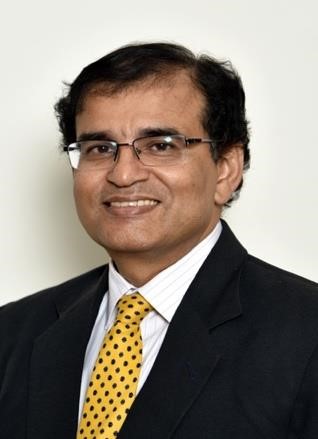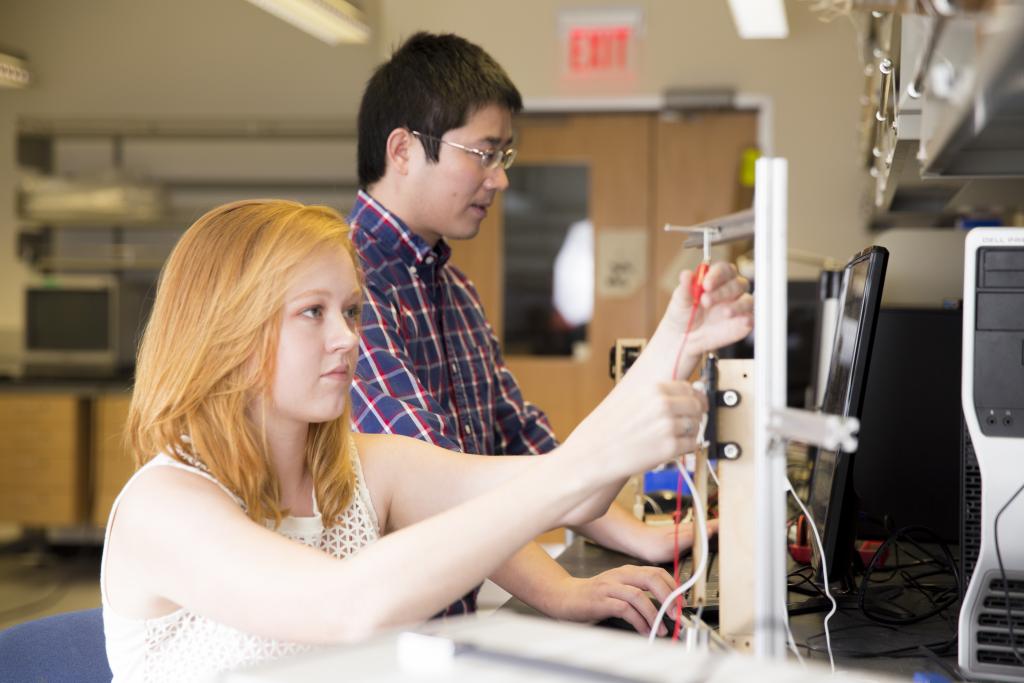News

December 19, 20232023 Jacobs School Highlights
It was another busy year at the Jacobs School of Engineering, as our students, faculty, staff, and industry and community partners worked together to pursue engineering and computer science for the public good. From research breakthroughs in robotics, AI and healthcare, to launching new centers for microelectronics and computing, here are just a few highlights from 2023. Full Story

December 12, 2023
UC San Diego Engineering Professors Elected Fellows of National Academy of Inventors
Eric Fullerton, a professor in the Department of Electrical and Computer Engineering, and Prashant Mali, a professor in the Shu Chien-Gene Lay Department of Bioengineering, have been named 2023 Fellows of the National Academy of Inventors. Full Story

November 30, 2023
Pamela Cosman Bridges Disciplines to Build a More Efficient, Equitable Future
Electrical engineering professor Pamela Cosman is the recipient of multiple research and diversity awards, a published author, a tenured faculty member with the UC San Diego Jacobs School of Engineering, a mother of four and director of the NeuroDiversity in Tech internship program at the university’s Qualcomm Institute (QI). She has won multiple awards for her research in image and video compression, and for promoting mentorship and gender equity in her field. Full Story

November 28, 2023
Electrical Engineer Receives Eckman Award for Research in Control Theory
Jorge Poveda, an assistant professor in the Department of Electrical and Computer Engineering at UC San Diego, has been named the recipient of the 2023 Donald P. Eckman Award in honor of his contributions to the field of automatic control. To mark this achievement, Poveda and his lab members explain in this video what control theory is and how it applies to our daily lives. Full Story
Summer Math Initiative: Program Schedule
Thank You for Joining the Summer Math Initiative!
This program is designed to help you prepare for ECE 35 by reviewing key mathematical concepts. Over the course of the summer, we will focus on the following three topics:
-
Solving Systems of Linear Equations
-
Derivatives and Integrals
-
Complex Numbers
Schedule
All sessions are held Wednesdays from 6:00 PM – 7:00 PM (via Zoom).
-
Opening Session – July 9
Instructor: Professor Nguyen
Overview of the program, topics to be covered, and tutor introductions.
Access the session here: Zoom
Topic 1: Solving Systems of Linear Equations
Tutor: Huong Hoang
-
July 23 – Introduction, problem-solving strategies, Q&A
Access the session here: Zoom
-
July 30 – Review homework problems, Q&A
Access the session here: Zoom
Topic 2: Complex Numbers
Tutor: Mehmet Bagci
-
August 6 – Introduction, practice problems, Q&A
Access the session here: Zoom
-
August 13 – Review homework problems, Q&A
Access the session here: Zoom
Topic 3: Derivatives and Integrals
Tutor: Runfa Li
-
August 20 – Introduction, practice problems, Q&A
Access the session here: Zoom
-
August 27 – Review homework problems, Q&A
Access the session here: Zoom
We look forward to an engaging and productive summer of learning!
Course 2024-2025

2024-25 NEW COURSES, look for them below.
look for them below.
Resources: ECE Official Course Descriptions (UCSD Catalog)
For 2023-2024 Academic Year: Courses, 2023-24
Particle accelerator on a nanophotonic chip
Particle accelerators are indispensable tools in science, industry and health care. Almost all of them are based on microwave driving. Based on a similar principle, acceleration of electrons with the help of laser light has already been proposed decades ago: Nanophotonic structures are needed that generate an optical near-field mode efficiently propelling the electrons. We could recently demonstrate the accelerator on a chip.
Making neural networks more trustworthy and sustainable
The use of deep neural networks (DNNs) is currently transforming many areas of science and engineering. Although DNN-based techniques outperform traditional algorithms in most signal processing tasks, they can exhibit weaknesses such as reduced robustness and a tendency to produce hallucinations. These issues are linked to the DNN's Lipschitz constant, which typically worsens exponentially with the addition of layers. In this work, we present a framework for the design of stable networks with maximal expressivity.
An Information Theory for Out-of-Order Information: Applications in DNA Data Storage and Genomics
The recent development of DNA-based data storage prototypes has raised several questions about how to optimally encode information in these systems. A distinguishing feature of this new storage paradigm is that the stored information is read via “shotgun” sequencing technologies. This means that the channel output comprises many short fragments of the input observed out of order. Motivated by this, we study the capacity of a class of “shuffling channels” that capture this inherent need to reorder the observed channel output.
Fundamentals of RF System Analysis for IC Designers
This seminar provides key insights into wireless system analysis from a circuit designer’s perspective, focusing on modulation techniques, line-up analysis, and link performance optimization. Participants will explore impairments in analog and mixed-signal components-thermal noise, phase noise, spurious signals, and distortion and their impact on system performance. The session covers critical metrics such as Signal-to-Noise Ratio (SNR), Error Vector Magnitude (EVM), Receiver Sensitivity, Blocker performance, and Transmitter out-of-band noise.
ECE Distinguished Alumni Awards

2025 Applied Mathematics Recipient- Subhasis Chaudhuri PhD' 1990
Bio: https://www.linkedin.com/in/subhasis-chaudhuri-36531b5/?originalSubdomain=in
Pagination
- Page 1
- Next page










.png)
.png)
.png)
